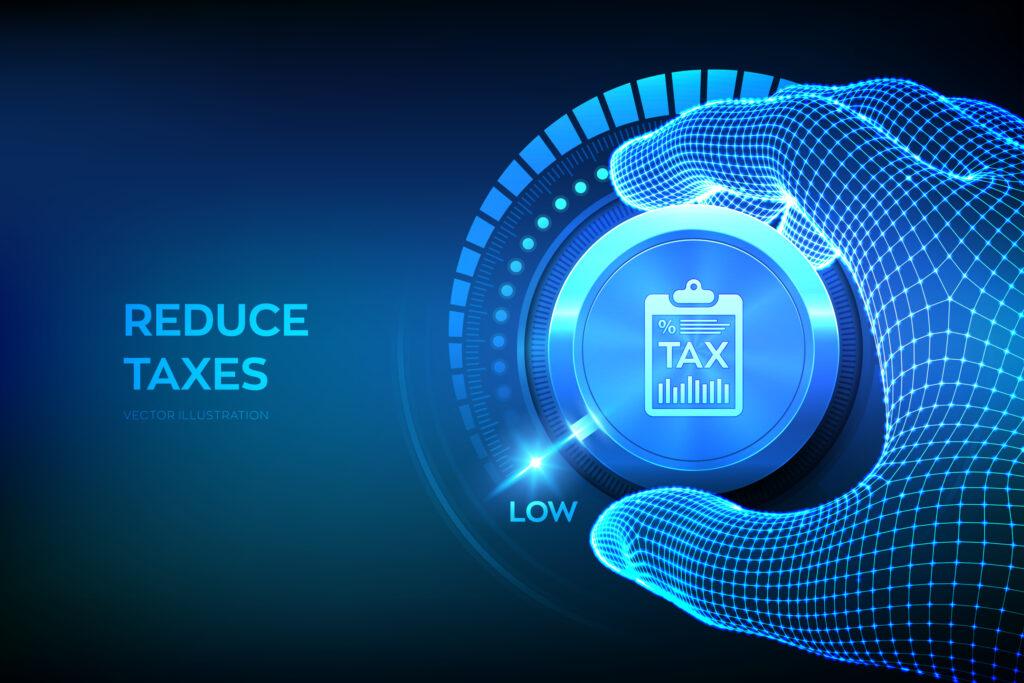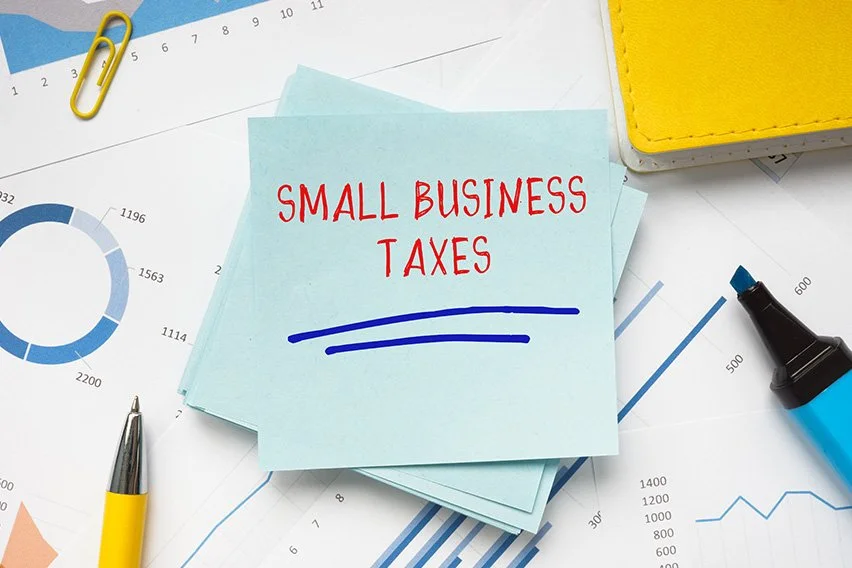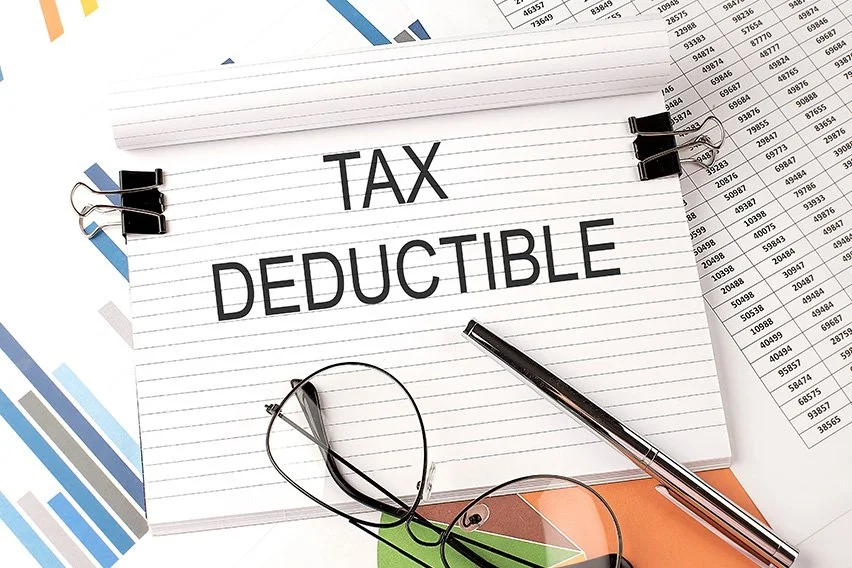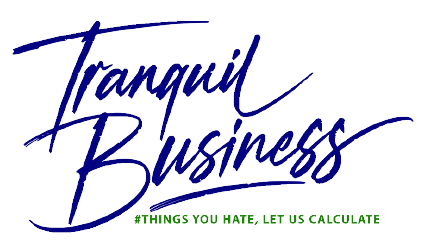
Common Tax Deductions for Small Businesses in 2023: What You Need to Know
If you are a small business owner, your business gains are subject to government taxes. Businesses must have an understanding of tax and tax deductions in their field. There are some common tax deductions for small businesses that can reduce the tax bills for the businesses.
“Know the taxes to thrive in the business fray, deductions and all, pave the profitability.”
Knowing taxes is essential for small businesses operating in a market. There are many tax deductions for small businesses that can help business owners in reducing tax bills. Businesses must keep accurate records and receipts to support deductions. With the help of these deductions, small businesses can keep taxes under control and, fortunately, thrive and grow.
Here in this blog, we will discuss commonly available tax deductions for small businesses.

Home office deductions:
Home office deduction is a deduction available for small businesses if they exclusively and regularly use a part of their home property as their primary business place. There is a need to satisfy some conditions to claim this deduction.
Business travel expenses:
Business travel expense deduction is a deduction available for small businesses for traveling away from home for business, profession, or job. This is not available for travel expenses for extravagant or personal purposes.
Vehicle expenses:
Vehicle expenses deduction is a deduction available for small businesses for operating vehicles for business purposes. Standard mileage rate and actual car expense are the two methods for figuring deductible vehicle expenses.
Equipment and supply deductions:
This deduction refers to a tax deduction for supplies and equipment used in business operations. To qualify for this deduction, individuals must use the equipment and supplies solely for business purposes.
Employee benefit deductions:
Employee benefit deduction is a deduction provided for the employees’ benefits planned by businesses for offering to employees. These employee benefits can include health insurance, retirement plans, education assistance, transportation, and childcare planning.
Advertising and marketing expenses:
Businesses can avail of tax deduction benefits based on advertising and marketing expenses. To seek the benefits under this deduction, companies can improve their marketing efforts in tradeshows, print advertising, sponsorship, and on their website.
Interest and bank charges deductions:
Small businesses can avail of tax deductions for interest and bank charges. To avail of this tax deduction, it is important to keep an accurate record and documents of loans and credits of business.
Rent and utility deductions:
Small businesses operating out of a rented space can avail of tax liability deductions. To take this benefit, small businesses must maintain accurate records of rent payments and utility payments made during the year.
Retirement plan contributions:
Taxpayers can use contributions to retirement plans to avail of tax liability deductions. Taxpayers should keep proper records of these contributions to benefit from the tax liability reduction.
Depreciation deductions:
A depreciation deduction is a deduction for the reduction of a business’s tangible or intangible assets’ real value. Business can reduce their taxable income, and subsequently, their tax liability also gets reduced.
Business insurance deductions:
Businesses can avail tax deductions for insurance they take, known as business insurance deductions, which help to reduce their taxes. These deductions apply to various business insurance schemes that are tax-deductible.
Professional services deductions:
Small businesses often avail professional services for accounting and legal-related work. Expenses incurred on these professional services are, fortunately, tax deductible.
Deducting bad debts:
Written-off bad debts are generally tax deductible. These bad debts cannot be collected and are worthless to creditors. By keeping records, small businesses can avail of tax deduction benefits based on it.
Charitable donations deductions:
A charitable donation is a business expense that is tax deductible and can be a basis for availing tax deduction benefits. For this giving back to the community business can also have a tax liability deduction benefit.
Tax preparation and filing deductions:
Tax preparation and filing expense is tax deductible. Small businesses can avail of tax deductions by showing the expense incurred in these finance activities.
Check out the income tax slab for FY 2023-2024.
Record-keeping requirements for tax deductions for small businesses
Record keeping is a process of keeping a record of the expenses incurred by a business over time. This record can be used for tracking and analyzing the expenses of a business later in any required period.
For tax deductions, small businesses need to maintain a proper record of all business expenses. Keeping proper records and organizing them safely for claiming the benefits available for tax liability deduction for small businesses is an essential part.
Types of records needed to be recorded:
- Incomes (including credit card, debit card, cash, sales, and other incomes)
- Expenses (including operation expenses, travel expenses, and any other expenses)
- Bank statements
- Business purchases
- Business expenses
Common mistakes to avoid when claiming tax deductions for small businesses

Claiming tax deductions is an important part of saving business taxability. There are some common mistakes to avoid while claiming tax deductions for your small business, such as:
Failing to keep records: It is important to keep and maintain business expense records properly, failure to leave the business without any proper record for claiming the tax liability deduction.
Attempt to claim inappropriate expense: The expense should be eligible and appropriate, an attempt to claim inappropriate expense can lead to a reduction of tax liability.
Forgetting eligible deductions: Small businesses must know about eligible deductions to avail of the benefit. Forgetting this can lead to a miss on the chance to get the benefits of a particular tax liability deduction.
Showing false estimation: It’s essential to have an accurate track and record of the expenses of a business. Overestimation and false representation can trigger penalties.
Failure to consult a professional: Tax laws are complex and keep on changing frequently. Hence, it is important to consult a tax professional to seek expert advice on the tax and tax deduction benefit.
How can Tranquil Business help?
Looking for a reliable and experienced accounting firm that understands the unique needs of your small business? Look no further than Tranquil Business! Our team of experienced professionals is dedicated to providing expert tax-related services, payroll services, accounting, bookkeeping, bank reconciliation, and more to small business owners just like you. With our cost-effective and flexible solutions, you can focus on what you do best while we take care of the rest. Don’t wait any longer. Let Tranquil Business take the hassle out of your tax-related tasks today!
Still confused about outsourcing for tax deductions?
Book your FREE consultation call now.
